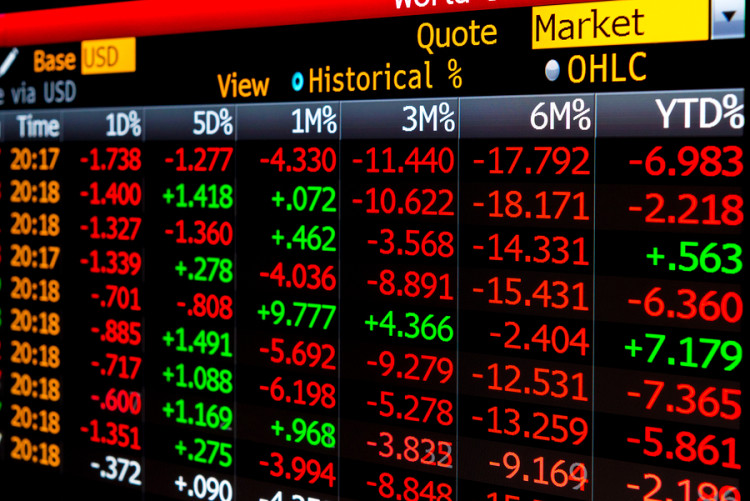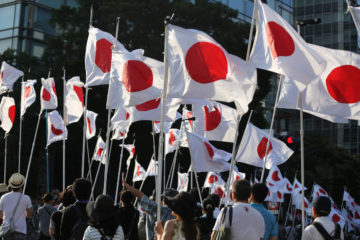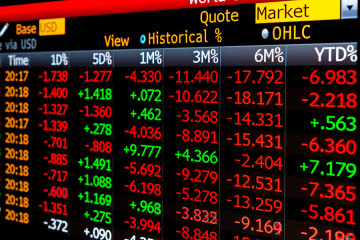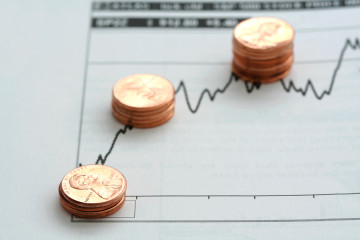Emerging Stocks Drop With Commodities, Reducing Monthly Advance

published Aug 31st 2016, 3:56 pm, by Natasha Doff and Matthew Kalman
(Bloomberg) —
Emerging-market stocks fell, trimming their third consecutive monthly gain, as declining commodity prices weighed on benchmark gauges in exporting nations from Russia to South Africa and Brazil.
A 0.6 percent decline that pushed the MSCI Emerging Markets Index to 893.68 reduced the gauge’s advance in August to 2.3 percent. The gauge posted its longest streak of monthly gains in two years as stimulus from global central banks outweighed concern that the Federal Reserve is on the brink of resuming U.S. interest-rate increases.
While the prevalence of negative interest rates across the developed world continued to support appetite for higher-yielding assets in emerging markets, the momentum has slowed amid signs the Fed will resume tightening policy this year. Equities in emerging countries have added $1.4 trillion in market value since May and exchange-traded funds capped a 13-week streak of inflows.
“For most emerging-market bulls the conditions for a further rally remains in place,” said Christopher Shiells, a senior emerging-markets analyst at Informa Global Markets Ltd., who recommends buying Latin American currencies, especially the real and Mexican peso. “The case for investing in traditional developed-market assets is changing as these markets are displaying risks we used to associate with emerging markets. Plenty of investors still have room to turn overweight on emerging markets if they decide to.”
The Micex Index declined 0.7 percent Wednesday as oil, Russia’s biggest export, dropped 2.8 percent to $47.04 a barrel in London. The country’s benchmark equity index posted a 1.4 percent gain in August after touching an all-time high last week.
The Ibovespa slid 1.2 percent in Brazil, trimming its third straight monthly gain as a decline in commodity producers including Vale SA and Petroleo Brasileiro SA overshadowed optimism that there will be a a fundamental shift in economic policy after the Senate voted to remove President Dilma Rousseff from office. BHP Billiton Plc led a 1.3 percent decline in South African stocks, which are down 0.1 percent since the end of July.
Investors pumped money into ETFs that buy emerging-market stocks and bonds last week, extending the longest winning streak in more than a year as inflows exceeded $19 billion over the past 13 weeks. The flows helped boost the market value of the 31 biggest emerging equity gauges to $15.8 trillion as of Tuesday, compared with $14.4 trillion at the end of May.
Currencies
The MSCI Emerging Markets Currency Index was unchanged Wednesday and slipped 0.1 percent in August.
South Africa’s rand was the worst monthly performer developing-nation currencies, weakening 5.8 percent against the dollar amid heightened domestic political risks that led Africa’s biggest private fixed-income money manager to stop lending money to six of the country’s largest state companies. Colombia’s peso and the Russian ruble were among the biggest gainers, each strengthening more than 1 percent.
The extra yield investors demand to hold emerging-market bonds versus U.S. Treasuries increased one basis point to 335 on Wednesday, according to JPMorgan Chase & Co. indexes. The premium narrowed 33 basis points in August.
Emerging-market dollar sovereign bonds have returned more than 7 percent in the past three months and yield an average of 4.2 percent, according to a Bloomberg index. Bonds in emerging Europe outperformed peers in August.
–With assistance from Angie Lau, Kartik Goyal, Jung Park, Nguyen Kieu Giang and Srinivasan Sivabalan. To contact the reporters on this story: Natasha Doff in London at ndoff@bloomberg.net ;Matthew Kalman in Jerusalem at mkalman2@bloomberg.net To contact the editors responsible for this story: Garfield Reynolds at greynolds1@bloomberg.net Richard Richtmyer, Nikolaj Gammeltoft
copyright
© 2016 Bloomberg L.P







No Comment